From Japan to the world
Good news for small businesses
In the Middle East (West Asia), Japan is now under intense attention.
The level of education and manufacturing technology of Japan, as well as the quality of Japan products, are attracting attention.
SMEs, do you want to distribute your products overseas?
The Japan Iran Association will help Japan companies expand their new sales channels.
With the arrival of a new era, let’s take a new step!
From business negotiations to contracts, we can handle them in Japanese.
【Support for Overseas Expansion of Companies】
- Various
investigations and procedures associated with the establishment of overseas offices.
・Credit and
market research of local companies and employees.
・Opening administrative and legal procedures.
●Bridging
between overseas companies and Japan companies.
・Acceptance of highly skilled personnel such as doctors, IT engineers, and industrial engineers from overseas.
・Business matching between companies.
Please feel free to contact us.
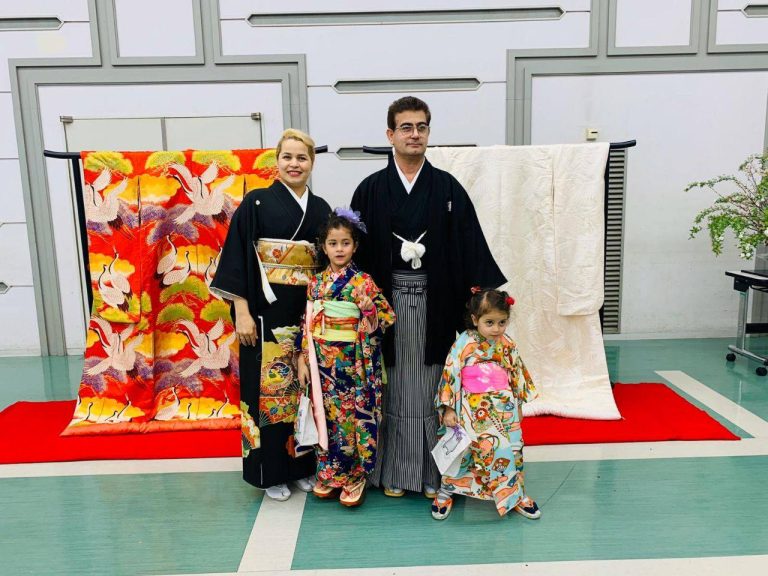
Business Policy
1-Japan support the operations incidental to Iran in order to stimulate the economy, industry, technology, products, commodities, etc. of both Iran.
2-Japan In order to promote mutual understanding and goodwill between the two countries, Japan will plan and support the invitation and dispatch of delegations to Iran and promote exchanges.
3-We support the international trade activities of companies in Iran that wish to expand into Iran in the Japan and in the future, and provide consulting and matching on various projects.
4- Iran is well-known as a resource-rich country, but it is not well known that there are other areas where demand is rising. Currently, this applies to industries such as medicine, health, environment (air pollution and water shortages), lifestyle, welfare, commerce, construction, and culture. We will develop Japan companies and sole proprietors that can meet the above needs in Iran.
5-Collaborate with corporations, organizations and human networks in Iran to raise awareness of Japan and develop new channels of business opportunities.
6-In order to improve the efficiency of our operations, we have established a local office of the Japan-Iran Association in Tehran, Iran.
7- Conduct direct business negotiations in Persian and Japanese without English.
8-We conduct credit checks on Japan companies, Iranian companies, and sole proprietors in both countries.
9-We have established a cooperative system with local lawyers and accountants to deal with business practices and corporate legal affairs in business transactions with Iran.
◎ In addition to the operations incidental to the above, we will respond to various projects.
Message from the president
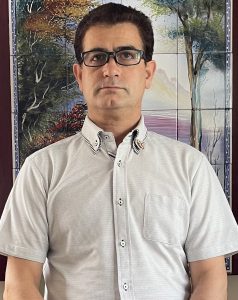
My name is Kazemi Mohammadhossein of the Japan Iran Association. I have been living in Japan for 32 years and live in Japan with my wife and two children.
In addition to selling carpets and working as a public interpreter for government offices, I am now engaged in Persian home cooking restaurant management and trade relations.
I have always wanted to promote cultural exchange between Japan and Iran, so since I started living in Japan, I have been involved in various volunteer activities and participated in international exchange events. In order to expand these activities, we established the Japan-Iran Friendship Association (voluntary organization) in October 2017 and have been engaged in private-sector exchange activities to contribute to peace and mutual understanding. However, since voluntary organizations have limited activities, we established the “Japan Iran Association” in January 2022.
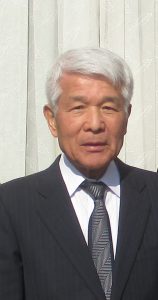
Special Adviser
Hiroyuki Tani (谷 博之, Tani Hiroyuki, born July 1943, 7) is a former Japan politician. Member of the House of Councillors belonging to the Democratic Party of Japan (6nd term), State Minister of Justice (Noda’s second reshuffled cabinet), Member of the Tochigi Prefectural Assembly(2 terms) and served as a member of the Utsunomiya City Assembly (2 terms).
In 2017, he became the chairman of the Iran Friendship Association in Japan, and since 2022, he has been a special advisor to the Japan-Iran Association.
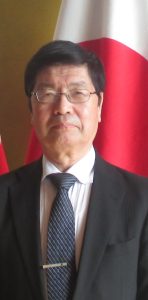
Shuichi Saito (born 1948) Worked at a local financial institution, worked for an organization outside Tochigi Prefecture after retirement, became Secretary General of the Iranian Friendship Association Japan in 2017 after retirement, and Director of the Japan Iran Association since 2022.
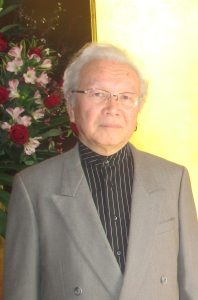
Hiroomi Kobayashi (Born in 1947) Born in Tochigi Prefecture, Representative of Kobayashi Project Co., Ltd. Vice Chairman of Japan-Iran Friendship Association in 2017 General Incorporated Foundation Manny Matsutani Medical Scholarship Foundation Selection Committee/Secretary General in 2022 General Incorporated Association from 2022 Director of Japan Iran Association.
Zamzam Seyedeh Fatemeh (born 1983)
Zanjan University Agriculture Faculty Graduated (2011 Zanjan University Agriculture Facility)
from 2022 Director of Japan Iran Association.
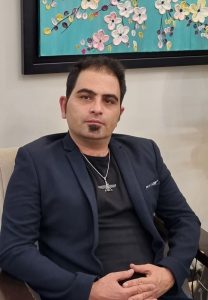
Saeed Kazemi (born 1979)
Japan Iran Assocaition Tehran branch chief
Description of business
From business negotiations to contracts, we can handle them in Japanese.
Developing Japan restaurant business in Iran and surrounding countries.Starting with Utsunomiya gyoza recommended by the Japan-Iran Association, local dishes from all over the country Japan and popular dishes from various regions are developed.To exhibit the main products of Japan companies at exhibitions in Iran.Support for personal travel or visits for research purposes required for business.Various investigations and procedures associated with the establishment of overseas offices.Credit and market research of local companies and employees.Opening administrative and legal procedures.Bridging between overseas companies and Japan companies.Acceptance of highly skilled personnel such as doctors, IT engineers, and industrial engineers from overseas.Business matching between companies.Please feel free to contact us.
Introduction to Iran
The Persian Empire is now Iran. Iran is an Islamic republic located in Asia and the Middle East. It is bordered by Armenia and Azerbaijan to the northwest, the Caspian Sea to the north, Turkmenistan to the northeast, Afghanistan and Pakistan to the east, the Persian Gulf and the Gulf of Oman to the south, and Turkey and Iraq (Kurdistan) to the west. It also faces Kuwait, Saudi Arabia, Bahrain, Qatar, and the United Arab Emirates across the Persian Gulf, and Oman across the Gulf of Oman. The capital is Tehran. Also called Persian or Persian. The official language is Persian.
The Iranians themselves have long called the country “Iran”, which means “land of the Aryans”, but in the West, since ancient times, the ancient name of the province of Fars “Pars” is derived from the name “Persian On March 1935, 3, Reza Shah asked foreign countries to use the original word “Iran” in official documents, and although it was officially changed to “Iran”, there was confusion. In 21, at the insistence of researchers, Mohammad Reza Shah identified Iran and Persia as alternative names. Later, when the Islamic Republic was established by the Islamic Revolution in Iran in 1959, the name of the country was set to Iran while the name of the Islamic Republic was used as the name of the national system.
Iran’s historical period begins around 3000 BC during the Proto-Elami period. After the arrival of the Aryans, a dynasty was established, and eventually the Haqamanish dynasty (Achaimenid dynasty) was established. In 550 BC, Cyrus the Great destroyed the kingdom of Media and conquered Persia, and then conquered the Persian kingdom to establish the Persian Empire, which ruled vast areas of the ancient Orient. In 539 BC, he liberated the Jews who had been taken into captivity in Babylon, and established Zoroastrianism as the principle of his rule.
The Achaemenid Empire was destroyed in 330 BC by a Greek expeditionary force led by Alexander the Great of Macedonia, but shortly thereafter the death of the Great King led to the Diadochi War, and the empire was divided into three and the Seleucid Empire ( 312 BC – 63 BC). During the Syrian Wars, the Arshak dynasty (Parthia), which inherited the Persian Empire of the Haqamanish dynasty, was established in 247 BC, and after the defeat of the Seleucid Empire in the Roman-Syrian War, Parthia defected.
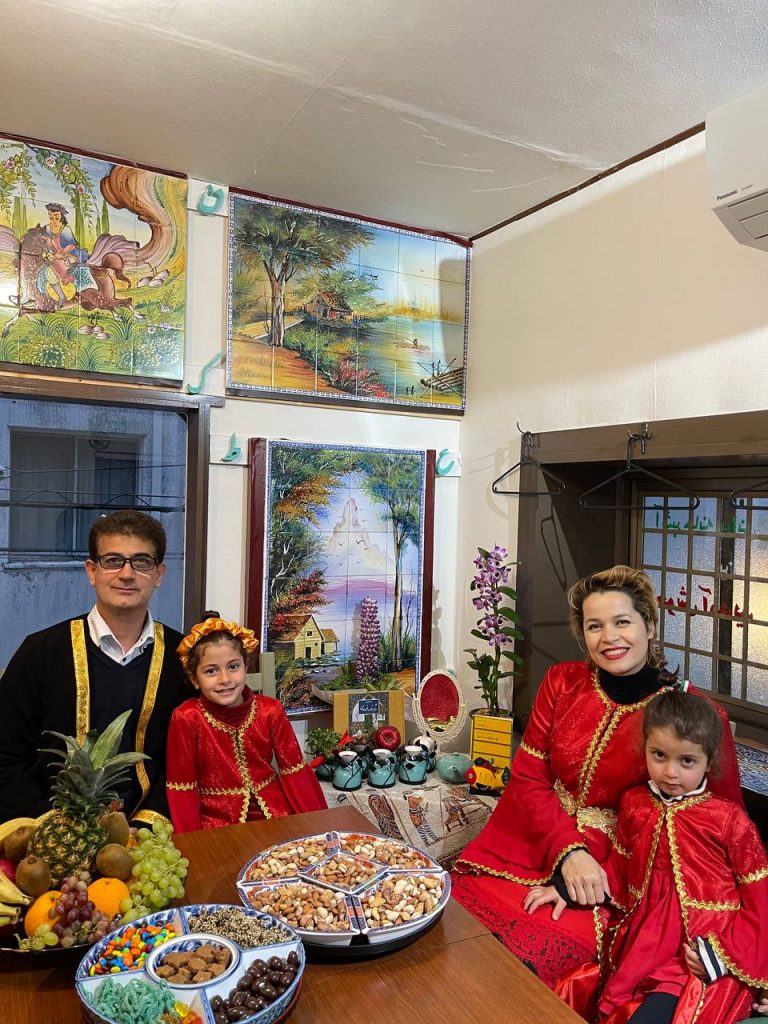
After the fall of Parthia, the Sassanid Empire was founded in 226. The Sassanid Empire often clashed militarily with the Roman Empire, and in 259/260 Shahpur I defeated his pro-Valerian at the Battle of Edessa and took him prisoner. These empires after the Achaemenid Empire prior to the Islamic period developed their own civilization as the great empires of the Orient and influenced the Roman Empire and the Islamic Empire in terms of cultural and political systems.
Iran’s economy is a mixed economy consisting of centrally controlled state-owned Iranian oil companies and state-owned corporations and privately owned enterprises such as rural agriculture, small commerce, and venture services. The government has been conducting market-based reforms to diversify Iran’s oil-dependent economy, allocating profits to other sectors, including the automobile, aerospace, consumer electronics manufacturing, petrochemical industry, and nuclear technology. It is working to improve the investment environment through the establishment of the Chabahar Free Trade Area and the Kish Island Free Trade Zone, aiming to attract foreign investment in the hundreds of millions of dollars. Modern Iran’s middle class is thick and solid, and the economy continues to grow, but high inflation and high unemployment are problems. Inflation averaged 2007.18% in 4 and reached 2008.4% in April 24 (Iranian calendar).
The Islamic Revolution in Iran made the redistribution of wealth one of its principles, but in reality, the gap between rich and poor is large. Families of high-ranking clergy and high-ranking government and military officials who are financially successful or enjoy studying abroad due to nepotism are called “agazadeh” (noble birth).[86]。
The budget deficit is a chronic problem, in part due to massive government subsidies totaling about $72.5000 billion a year, mainly for food and gasoline. In response, the Ahmadinejad government has been phasing out subsidies for gasoline and food since 2010, and has switched to cash transfers for low-income groups.[87]。
Iran is OPEC’s second-largest oil producer, producing 2 million barrels per day in 2016. It accounts for 200% of the confirmed world oil reserves. It also ranks second in the world in terms of natural gas reserves, after Russia. Crude oil exports were a valuable means of earning foreign currency, and the very strong price of oil in 10 supplemented Iran’s budget deficit and was used to pay off debt and interest payables.
Agriculture was aimed at activation through state investment and production liberalization, and export markets were developed through sales to foreign countries and marketing, and overall improvements were made. Iranian agriculture in the 1990s was the fastest growing sector of the economy due to the expansion of agricultural products for export such as dates, pistachios, and flowers, as well as large-scale irrigation programs. Despite a series of droughts, agriculture remains the sector with the largest jobs in Iran.
Iran is also focusing on biotechnology and pharmaceutical manufacturing. Major trading countries include France, Germany, Japan, Italy, Spain, Russia, South Korea and China. Since the latter half of the 1990s, Japan has been promoting economic cooperation with developing countries such as Syria, India, Cuba, Venezuela, and South Africa. It is also expanding trade with Turkey and Pakistan in the region and shares a vision of market integration in West and Central Asia.
